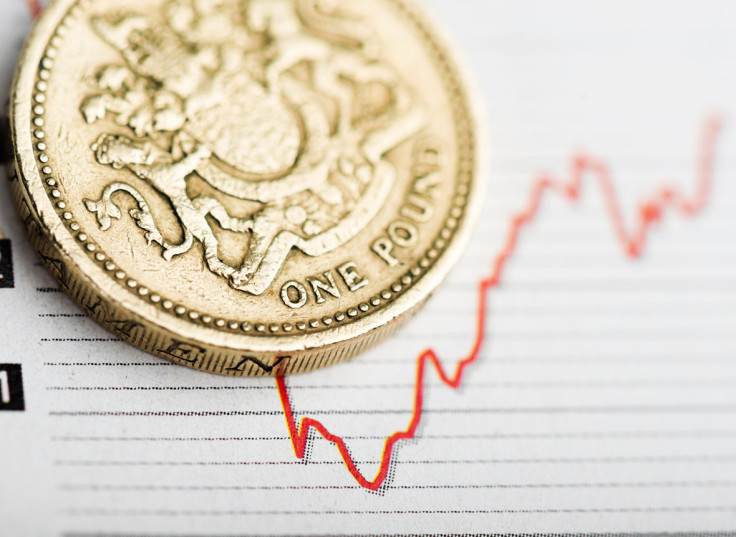FX Focus: Slowdown in UK economy drags pound lower
UK GDP data revised down to show economy grew only 0.2% in the first three months of the year.

The pound edged lower on Thursday (25 May) after a report showed the UK economy suffered a sharper than expected slowdown in the first three months of the year.
By mid-afternoon, sterling was trading 0.19% lower against the dollar at $1.2949 but was broadly flat against the euro, fetching €1.1552.
Earlier in the day, the Office for National Statistics (ONS) reported that Britain's gross domestic product (GDP) grew 0.2% on a quarterly basis in the three months to the end of March, slightly below the 0.3% gain recorded in the preliminary estimate last month.
The figure, which was expected to remain unchanged, marked the slowest growth rate since the first three months of 2016.
"The new expenditure breakdown of GDP shows that sterling's depreciation has had an overall negative impact on the economy's performance," said Samuel Tombs, chief UK economist at Pantheon Macroeconomics.
"Households have compromised their ability to fund further increases in spending over the coming quarters, when their real incomes will be coming under even more pressure from high inflation."
However, while sterling was under pressure, analysts suggested the tide could soon turn.
"We continue to think that the pound could creep higher, after the market slashed their short bets on the pound for yet another week last week," said Kathleen Brooks, research director at City Index.
"There could also be further upside after momentum indicators backed away from overbought levels, suggesting that there could be room for further sterling upside from a technical perspective."
Meanwhile, the dollar was on the front foot after the minutes from the Federal Reserve's latest policy meeting in early May showed members agreed to plans to begin trimming the central bank's massive balance sheet.
The minutes, which were released on Wednesday night, also pointed to a likely rate increase "soon".
"The Federal Reserve has done a much better job in communicating a more consistent message to markets and getting on with the job of renormalising monetary policy," said David Absolon, investment director at Heartwood Investment Management.
"Part of this shift has been helped by the recovery in global economic conditions, as the Fed is now able to focus specifically on its mandate and avoid the distraction of external forces."
The greenback seemed to welcome the news, gaining 0.21% and 0.30% against the euro and the yen respectively, trading at 0.8923 euro cents and ¥111.79, but was broadly flat against the Swiss franc, trading at CHF0.9767.
The US currency also recorded gains against his Canadian and Australian counterparts, rising 0.25% against the former and 0.44% against the latter, to trade at CAD$1.3440 and AUD$1.3396 respectively.
© Copyright IBTimes 2025. All rights reserved.




















